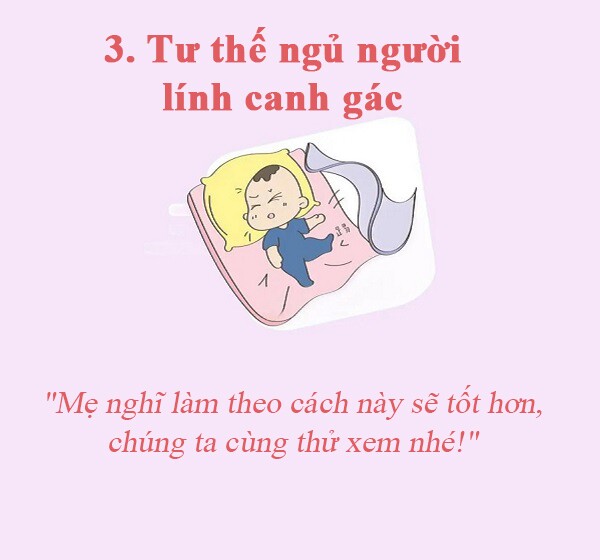It is quite common to observe that our sleeping posture differs significantly from our waking posture in the morning. This seems to be more than just a change in sleeping posture, as it also reflects our various emotions and psychological states.
Similarly, the way a child sleeps can reveal something about their personality. In fact, sleeping posture is not merely a physiological act but is intimately connected to a child’s psychological state and character traits.
According to psychologists, changes in sleeping posture can indeed expose a child’s inner world and character traits to some extent. So, let’s explore what your child’s sleeping posture says about their personality.

The Fetal Position
If your child sleeps curled up in bed, with their legs tucked in close to their body and their arms placed in front of their chest, it gives them a sense of security, reminiscent of the comfort and stability they felt in their mother’s embrace.
Children who favor this sleeping posture may appear strong on the outside, but they tend to be soft-hearted on the inside. They are more likely to feel fearful or anxious in unfamiliar environments and have a sensitive, shy personality when encountering strangers.
Moreover, due to a lack of security, they may become overly dependent on those close to them and crave attention and support from others.
If your child frequently sleeps in this position, it suggests that they need more psychological comfort and support in their life. As a parent, you can help build their self-confidence and strengthen their character by spending more time caring for, encouraging, and affirming them.


The Log Position
This is a typical straight sleeping posture for children, where they lie almost without bending their body, with their torso tilted to one side, and their arms and legs naturally attached to their body, straight like a log.
Children who sleep in this position tend to have an affable personality and are very amicable in their interactions with others. They know how to maintain harmonious relationships with those around them.
Interestingly, they often possess leadership qualities and have a strong presence. In a group, they attract the attention of others, displaying rationality and calmness when solving problems.
They are also sincere and modest, making it easy for others to accept them.
If your child occasionally sleeps in the log position, it indicates that they are in a stable and comfortable state, so there’s no need for parents to worry excessively.
Parents can encourage their children to explore new things, such as taking on the role of a team leader during play, to stimulate their potential leadership skills.


The Soldier Position
Children who sleep in the soldier position typically lie on their back, with their arms placed close to their body, straight as if standing guard.
Those who favor this sleeping posture tend to be diligent, with a strict and principled personality. They approach problem-solving calmly and rationally and rarely engage in risky behaviors.
These children are often responsible and hard on themselves, setting high standards for both themselves and others.
On the flip side, they may be stubborn and resistant to accepting different opinions or changes.
If your child sleeps in the soldier position for an extended period, they may develop a conservative personality. Therefore, when communicating with them, parents should provide appropriate guidance to teach them flexibility, creativity, and open-mindedness, rather than insisting on their way.


The Starfish Position
Characterized by arms and legs spread wide like a starfish, this sleeping posture gives the impression of “taking up space.”
Children who prefer this position tend to be extroverted and enthusiastic, easily forming deep friendships. They are sincere, helpful, and enjoy participating in group activities.
However, this posture also suggests that the child may be overly confident and even slightly conceited at times. Due to their overconfidence, they may overlook their flaws and act optimistically in a subjective manner.
For such children, parents should help them maintain an appropriate level of modesty and avoid displaying excessive arrogance.


Prone Position
Sleeping on the stomach is a posture favored by many children. However, those who prefer this position tend to have distinct personality traits.
They tend to be reserved and reluctant to express themselves in front of others but are proactive when facing tasks. They may not be adept at expressing their emotions but will take action to solve problems.
However, children who sleep in this position are also prone to feelings of insecurity and anxiety.
Therefore, parents should pay special attention to their psychological state, refrain from complaining, and instead, help them overcome their worries and build self-confidence through encouragement and positive feedback.
By observing their sleeping posture, parents can gain insight into their children’s habits and discover hidden aspects of their personality. Each sleeping posture holds a special psychological meaning, providing a window into the child’s inner needs and developmental journey.
Of course, a child’s personality is not fixed and will change and develop over time. Parents should offer appropriate care and guidance suited to each stage of their child’s growth.







































